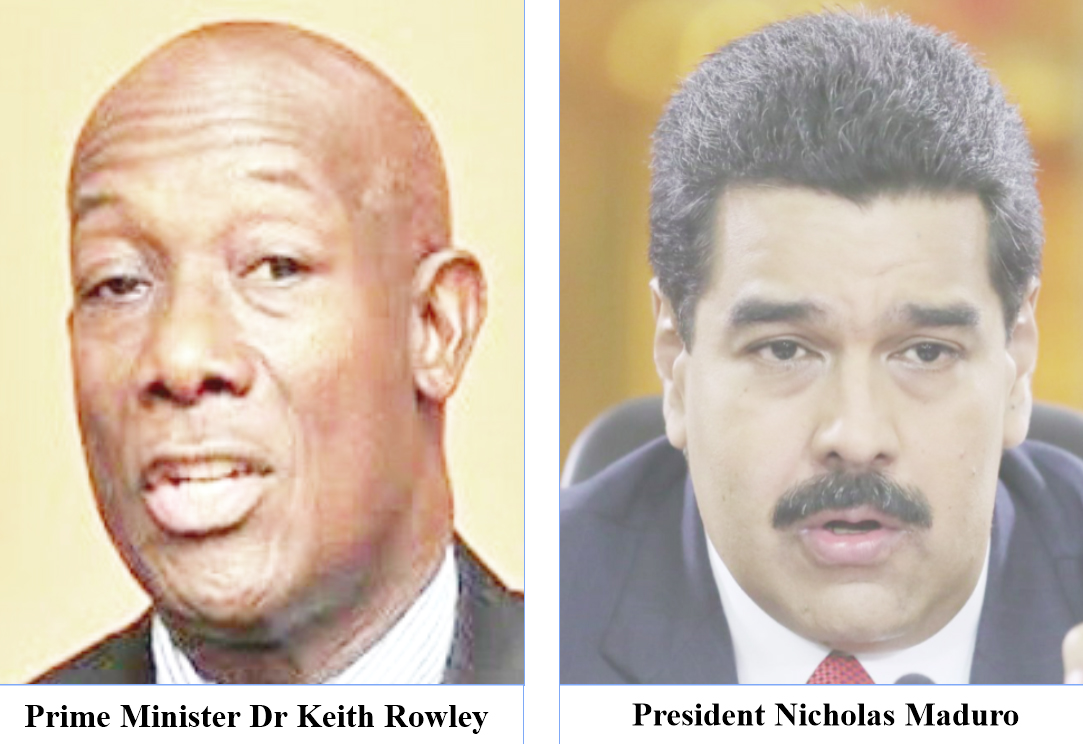Just how far the influence of the United States extends in applying strong pressures on out-of-favour political administrations was again reflected last week when Trinidad and Tobago Prime Minister Dr Keith Rowley broke the news to his country that what had promised to be an economically game-changing bilateral agreement between his country and Venezuela for the exploitation of a gas-rich area shared by the two countries had been put on hold.
And while Dr Rowley avoided making a huge political ‘deal’ out of the development while speaking at his country’s 2020 Energy Conference in Port of Spain last week, asserting that it was “regrettable” that the natural gas exploitation project could not go ahead at this time, he dropped an unmistakable hint that the sidelining of a project for which he said “virtually all the preparatory work has been done,” had resulted from what, currently, is the United States’ preoccupation with imposing a level of economic pressure that would force the government of President Nicholas Maduro out of office.
The announcement effectively puts a hold on the bilateral agreement between Port of Spain and Caracas to jointly exploit the shared Loran-Manatee gas field estimated to contain in excess of 10 trillion cubic feet of gas, with two thirds of the field (Loran) located in Venezuela and the remaining third (Manatee) located inside Trinidad and Tobago’s borders.
Now that the bilateral deal has been effectively scuttled, Rowley told the Port of Spain conference that his administration will now be pushing ahead with Manatee, which, according to Rowley, is the “single most significant development in the energy sector in recent times.”
Just how vulnerable small countries in the region remain to Washington’s might once there is an attempt to stand in the way of Washington’s push to remove Maduro from office, is reflected in the caution with which Dr Rowley has handled the scuttling of his country’s deal with Venezuela. Avoiding any reference to the incremental efforts of the Trump administration to strangle access by the Maduro government to funds from the country’s oil sector, Rowley only went as far as saying that “at a moment’s notice, we [Trinidad and Tobago] are ready to move ahead with the project on the lifting of such restrictions since virtually all the preparatory work has been done.”
In the wake of what is, in effect, the tearing up of the Port of Spain/Caracas oil field exploitation deal there are reports that Royal Dutch Shell, the company currently operating Trinidad and Tobago’s Manatee block, has agreed to develop the block and has begun to formulate a suitable plan for so doing. In his Conference address Rowley said that the Manatee block pursuit should add approximately 275 to 400 million cubic feet of gas to the country’s energy assets by 2024 and could well be a game changer for the country’s economy. The gas is reportedly located in shallow water and should come on stream in less than five years.
The original agreement between Trinidad and Tobago for the joint exploitation of the Loran/Manatee gas fields was signed almost a decade ago, in August 2010, after what, reportedly, were lengthy delays in concluding the deal.
The scuttling of the deal will serve as an object lesson to Port of Spain and to the Caribbean Community as a whole, regarding what still remains the undoubtedly overwhelming clout that the US has in the region and which extends to the interfering, in pursuit of what it considers to be its strategic interests, in issues that could have a critical impact on the economic interests of other countries.
Washington’s push to isolate the Venezuelan Government, separating the Maduro administration from the country’s oil earnings by pressuring third countries into non-cooperation with the country’s oil & gas industry has seen the gradual withdrawal of several international oil-related interests from Caracas leaving the US giant Chevron as almost the last man standing, and then only on account of the specific clearance provided by Washington for the company to continue operating in Venezuela.






